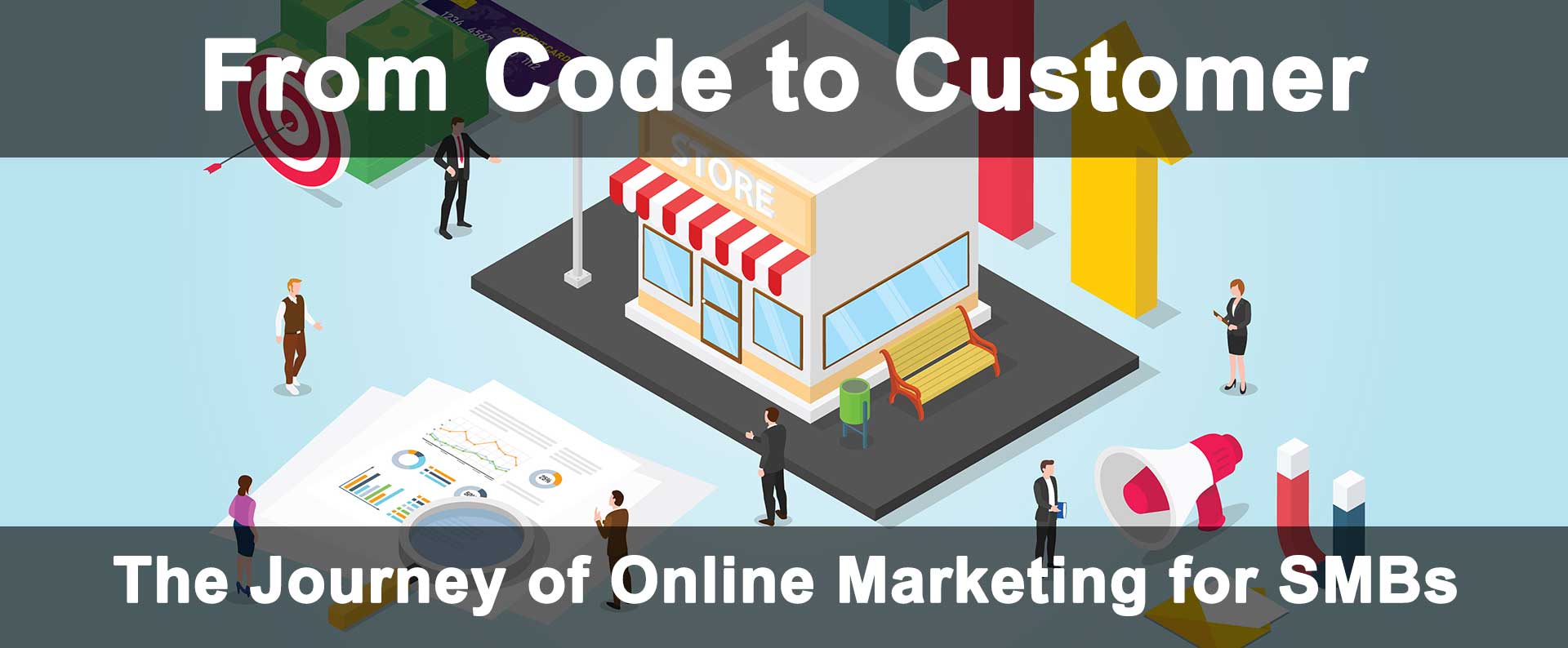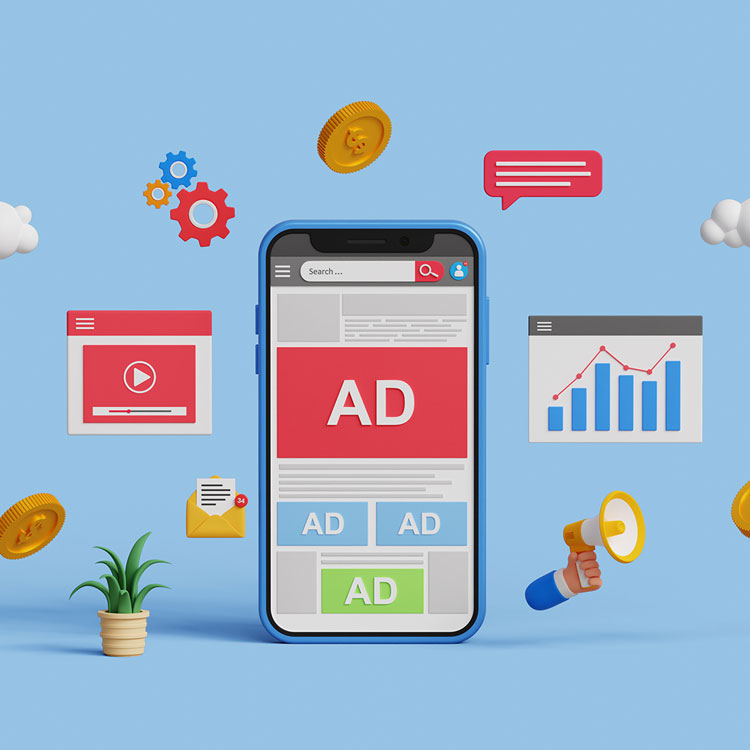In today’s digital landscape, online marketing is crucial for small and medium businesses (SMBs) across various industries. This comprehensive guide outlines essential steps for developing effective online marketing campaigns, from creating a website to implementing SEO and social media strategies.
Each section provides examples from various industries, including hospitality, retail, construction, healthcare, fitness, and professional services. Let’s explore these steps in detail.
1. Building a Professional Website
Why a Website is Essential
Your website is often the first interaction potential customers have with your business. A professional and user-friendly website builds credibility and serves as the hub of your online presence.
Key Elements of a Good Website
- User-Friendly Design: Ensure easy navigation and a clean layout.
- Mobile Optimization & Responsive Design: With increasing mobile users, a responsive design is essential.
- High-Quality Visuals: Use professional images or videos to showcase your products/services.
- Clear Branding: Use consistent logos, colors, and messaging.
- Compelling Content: Provide informative and engaging content about your offerings.
- Fast Loading Speed: Optimize images and code to ensure quick loading times.
- Clear Call-to-Action (CTA): Use CTAs to guide visitors towards desired actions, such as making a purchase or signing up for a newsletter.
Industry Examples
- Hospitality: A well-designed hotel website with stunning images of rooms and amenities can attract more bookings.
- Retail: An e-commerce site for a clothing store should feature clear product images and a simple checkout process.
- Healthcare: A clinic can provide an online appointment booking system and detailed descriptions of services offered.
2. Mastering Search Engine Optimization (SEO)
Understanding SEO
SEO is the process of optimizing your website to rank higher in search engine results, making it easier for potential customers to find you.
Key SEO Strategies
- Keyword Research: Identify relevant keywords your audience is searching for.
- On-Page SEO: Optimize title tags, meta descriptions, and content with keywords.
- Backlinks: Build relationships with other sites to gain quality backlinks.
- Quality Content Creation: Regularly publish informative blog posts or articles.
Industry Examples
- Healthcare: A clinic can optimize its website for keywords like “family doctor near me” to attract local patients.
- Construction: A local contractor could create blog posts about “home renovation in [Location]” to improve local search visibility using keywords like “home remodeling” or “kitchen renovation.
- Retail: An online store can optimize product descriptions and blog posts about fashion trends to attract organic traffic.
3. Harnessing the Power of Social Media
Why Social Media Matters
Social media platforms allow you to engage directly with your target audience, and is crucial for building relationships, and brand loyalty. They provide opportunities to showcase your brand personality.
Effective Social Media Strategies
- Choose the Right Platforms: Focus on platforms where your audience is most active (e.g., Instagram for visual products, LinkedIn for professional services).
- Content Strategy: Create a mix of promotional, educational, and entertaining content.
- Engagement: Respond to comments, run contests, and share user-generated content.
Industry Examples
- Restaurants: Utilizing Instagram to post mouth-watering food images and specials can entice customers.
- Fitness: Personal trainers can share workout tips and success stories to inspire followers.
- Professional Services: A law firm might use LinkedIn to share articles on legal advice and engage with potential clients.
4. Embracing Email Marketing
The Role of Email Marketing
Email marketing is a powerful tool for nurturing leads and maintaining customer relationships. It is a direct line to your customers, allowing you to share news, promotions, and valuable content.
Strategies for Success
- Build an Email List: Encourage website visitors to subscribe through pop-ups or newsletter sign-ups.
- Segmentation: Tailor emails based on customer interests or previous interactions.
- Compelling Content: Include valuable information, such as tips, industry news, and special offers.
- Clear CTAs: Encourage readers to take specific actions, such as visiting your website or making a purchase.
Industry Examples
- Retail: Send personalized discounts to loyal customers based on their purchase history.
- Professional Services: Offer free resources or consultations through targeted email campaigns.
- Healthcare: A clinic might send reminders for check-ups or seasonal health tips to patients.
- Restaurant: A restaurant can send out weekly newsletters with special offers and seasonal menu items.
5. Leveraging Paid Advertising
Benefits of Paid Advertising
Paid advertising can significantly increase your visibility and reach within a short time frame.
Types of Advertising
- Google Ads: Target specific keywords to display ads in search results.
- Social Media Ads: Use platforms like Facebook or Instagram to run targeted ad campaigns.
Industry Examples
- Hospitality: Hotels can use Google Ads to promote special weekend rates to local customers.
- Healthcare: Clinics might advertise services like flu shots to local communities through targeted Facebook ads.
- Construction: A contractor might use Google Ads to garner new remodeling needs.
- Retail: A local gift shop might use Facebook ads to generate interest and sales for unique gift ideas for the holidays.
6. Creating High-Quality Content
Content is King
Content marketing helps establish your authority and provides value to your audience.
Content Ideas
- Blog Posts: Write informative articles that address common customer questions.
- Videos: Create tutorials or behind-the-scenes content to engage your audience.
Industry Examples
- Construction: A blog post on “Top 10 Home Renovation Tips” can attract potential clients.
- Fitness: A video series on effective workout routines can draw in new clients to a gym.
- Retail: A local clothing boutique might write posts or create videos showing some of the latest style trends.
7. Engaging in Local Marketing
Attracting Local Interest & Awareness
Local marketing helps you connect with your community and attract nearby customers.
Local Marketing Strategies
- Online Directories: Ensure your business is listed on Google My Business and Yelp.
- Local Sponsorships: Sponsor community events or local sports teams.
Industry Examples
- Retail: A boutique can benefit from being featured in local shopping directories.
- Restaurants: Hosting charity events or participating in local festivals can increase community visibility.
8. Analyzing & Adjusting Your Strategy
The Importance of Analytics
Regularly analyzing your marketing campaigns helps you understand what works and what needs improvement.
Key Metrics to Track
- Website Traffic: Use tools like Google Analytics to see how visitors interact with your site.
- Conversion Rates: Measure how many visitors take desired actions (e.g., signing up for newsletters, making purchases).
- Social Media Engagement: Track likes, shares, and comments to gauge audience interaction.
- Email Open Rates & Performance: Track open rates and click-through rates to gauge campaign effectiveness.
Industry Examples
- Professional Services: A law firm can track the effectiveness of its content marketing through client inquiries generated from blog posts.
- Healthcare: A clinic can analyze appointment bookings resulting from its online advertising campaigns, or evaluate which health topics generate the most interest to guide future content creation.
- Hospitality: A hotel can track bookings generated from specific social media ads to determine ROI.
- Construction: A contractor can analyze which blog posts drive the most traffic to their website and adjust content strategies accordingly.
- Retail: An online clothing store can analyze which products generate the most traffic and adjust their marketing strategies accordingly.
Summing It Up
By following these essential steps, small and medium businesses can effectively navigate the journey from code to customer. Building a robust online presence through a powerful website, SEO, social media, and targeted marketing strategies will help you reach and engage your audience.
Whether you operate in hospitality, retail, construction, healthcare, fitness, or professional services, implementing these strategies will position your business for success in the digital marketplace.













